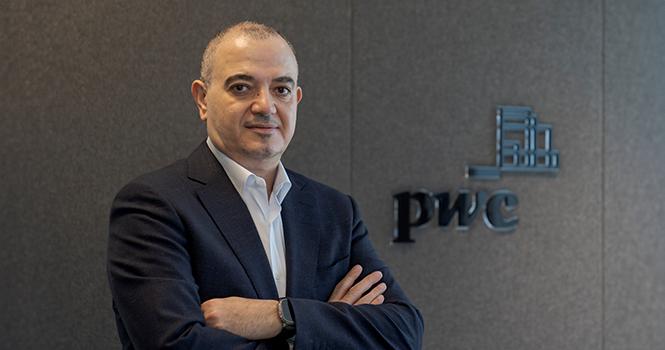
Saudi economy to grow in 2024 supported by non-oil activity: PwC ME Chairman
Saudi economy will likely witness growth in 2024, driven by new reforms and diversification efforts that will set the foundation for future development and investments in the Kingdom, Riyadh Al-Najjar, Chairman of PwC Middle East, told Argaam.
He added that non-oil activity, supported by an increase in investments, will be the main growth driver this year and beyond.
Some sectors recently witnessed major changes, including tourism, hospitality, healthcare, digital transformation, and agriculture.
Five key areas have surpassed Vision 2030 goals, Al-Najjar said. These are digital transformation including the development of an artificial intelligence strategy, first residents of The Line project, continual efforts to transform the economy, transition to clean energy, and, developing workforce including localization.
Moving forward, fiscal and economic reforms paired with current and future investment programs, will help generate a strong, inclusive and more sustainable growth for the Kingdom.
Non-oil private sector growth accelerated to 5.8% year-on-year (YoY) in Q2 2023 and stood higher by 13.9% compared with 2019. The recovery is being seen across non-oil industrial and services sectors.
Wholesale, retail, and transport sectors recovered, driven by a rebound in tourism especially religious tourism. The Kingdom also witnessed recovery in the financial services, non-oil manufacturing, and construction sectors.
Here are details of the interview:
Q: What factors contributed to the significant growth of Saudi Arabia's non-oil private sector in 2023?
A: Non-oil private sector growth accelerated to 5.8% year-on-year (YoY) in Q2 2023 and stood higher by 13.9% compared with 2019. The board recovery was across non-oil industrial and services sectors.
Wholesale, retail, and transport sectors recovered, driven by a rebound in tourism especially religious tourism. The Kingdom also witnessed recovery in the financial services, non-oil manufacturing, and construction sectors.
Moving forward, fiscal and economic reforms paired with current and future investment programs, will help generate a strong, inclusive and more sustainable growth for the Kingdom.
Q: What are the key reasons for slowdown in non-oil government sector?
A: The non-oil government services declined. However, based on our findings, this only represents government services and does not fully capture the continued government capital expenditure and investments in priority sectors. This, accordingly, would help the non-oil sector to maintain its performance, as the report explains that the non-oil government sectors slowed down by 3.8%.
Q: Could you elaborate the economic diversification initiatives mentioned in the report and their contribution to Saudi Arabia's economic growth and stability?
A: The Kingdom has set various diversification targets as part of Vision 2030 and other national strategies that aim to transform the economy.
The targets include taking non-oil exports to 50% and the National Development Fund (NDF) aims to triple the size of the non-oil economy by 2030. These initiatives intend to address multiple objectives to support the Kingdom’s diverse economic agenda.
Based on our findings, and the progress of ongoing change, the Saudi government is committed to activating new sectors, tourism, hospitality, media and entertainment, mining and metals, digital and financial services, and renewable energy.
The investments in the 14 giga projects is a testament to this ambition. Including NEOM, the Red Sea, AlUla, Diriyah, Amaala, and Qiddiya. These investments will have significant impacts in meeting targets and improving the quality of life for the local community. Finally, these investments are also accompanied by broader social and economic reforms, which will improve the business environment and attractiveness to foreign investment.
Q: What is the role of the Public Investment Fund (PIF) and assets under management (AUMs) on the Saudi economy?
The PIF is a roadmap for the advancement of Vision 2030, as it supports the development of Saudi Arabia's economy by contributing to non-oil GDP growth and invests in opportunities across diversified sectors.
The PIF has a mandate to support the diversification of the economy and create jobs in the Kingdom, with more than 80% of its funds invested domestically.
According to the report, the PIF's AUMs increased five-fold to SAR 2.9 trillion from the baseline. The impact of PIF’s contribution to the Kingdom is spread across strategic sectors. In 2022, a fifth of PIF assets were aimed at developing new industries like gaming, while another 5% was earmarked for giga-projects like the $500 billion NEOM project.
Overall, the larger impact of these investments and future investments catalyses sectors and improves their attractiveness to potential investors. It also encourages private sector participation, and creates new job opportunities.
Q: How did the country manage to maintain non-oil revenue growth and diversify its revenue streams?
A: The diversification of fiscal revenues within the non-oil sector is an important Vision 2030 goal. According to the report, fiscal revenues increased 2.5 times and are expected to increase further in the coming years. This is driven by the introduction of tax measures like VAT and excise taxes, as well as the subsequent increase in VAT to 15% to improve fiscal sustainability.
The growth in the non-oil sector also contributed to revenue growth. In the past year, there was a significant increase in corporate income tax revenues, particularly from foreign companies, reflecting stronger corporate profits.
Household consumption remained buoyant, which positively contributed to revenue from taxes on goods and services such as VAT.
Q: What are expectations for Saudi Arabia's economic performance in the near future, considering the positive indicators mentioned in the report?
A: Based on our findings, we expect to see economic growth in 2024 and witness new reforms and diversification that will set the foundation for future development and investments in the Kingdom. Non-oil activity will be the main growth driver this year and beyond, which is supported by an increase in investments.



























